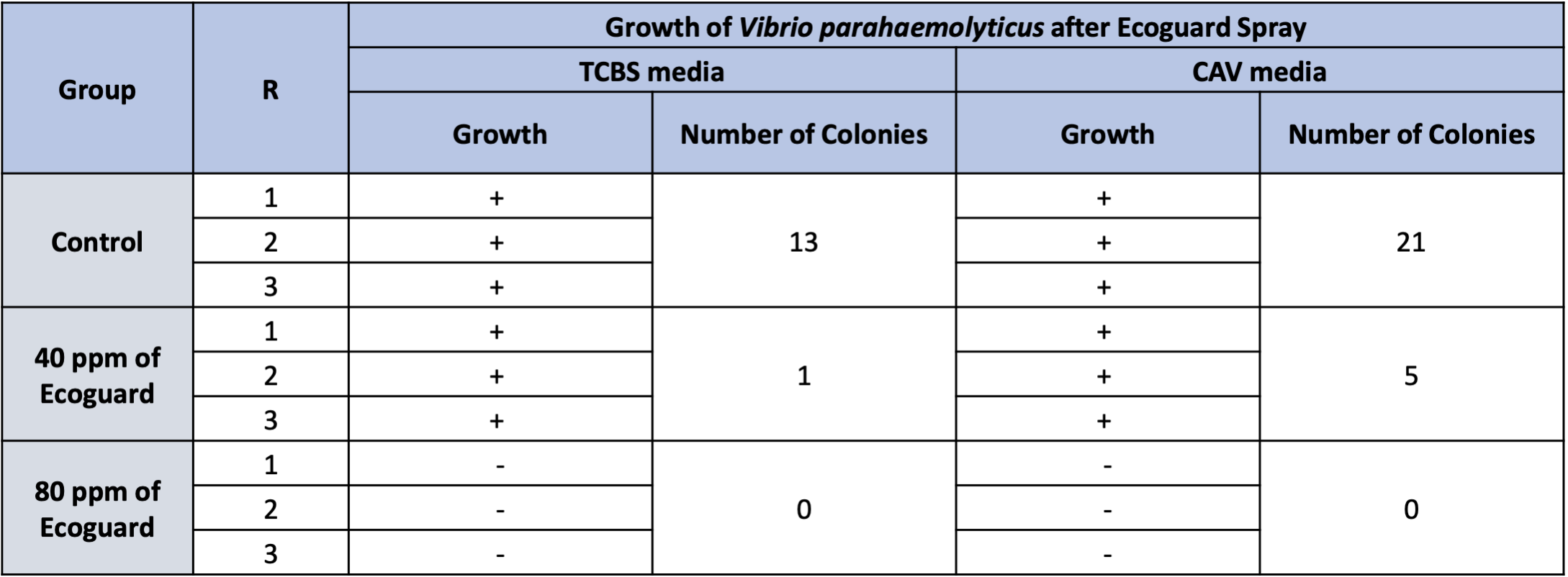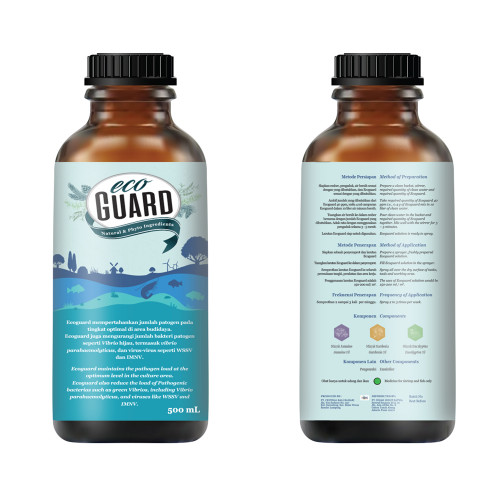
There are several main classes of active chemical ingredients used in disinfectants, such as peroxides, hydrochloric acid, phenols and others. The overuse of certain disinfectants containing chemical compounds can lead to acute and chronic health issues. Spraying chlorine and related chemicals into the environment may have a negative impact causing human health problems such as eye and skin irritation, bronchospasms and gastrointestinal effects. Rhea Natural Sciences has developed an equally effective disinfectant called Ecoguard, which is entirely based on natural ingredients which do not possess any health risk to humans and animals and our research has determined efficacy and safety as a disinfectant in shrimp hatcheries with superior activity against the major shrimp pathogens Vibrio harveyi, V. campbellii, V. parahaemolyticus and V. splendidus. More details and scientific data about Ecoguard can be downloaded here.
Ecoguard is comprised of ingredients from 3 essential oils:
Jasminum officinale
Jasmine oil is an essential oil extracted from the jasmine plant, which has been known for a long time for its anti-microbial activities. Amongst other essential oils, Jasmine oil also showed the highest anti-biofilm activity against the fungal pathogen Candida albicans.
Gardenia jasminoides
Gardenia Oil’s antibacterial activities and in vitro anti-inflammatory properties of Gardenia coronaria leaves have been well documented. Bioactive components with antiviral activities isolated from Gardenia jasminoides have also been described and well characterized before.
Eucalyptus species
Essential oil extracted from various Eucalyptus plant species contain many pharmacologically active compounds which are useful as antimicrobial agents. The main components of Eucalyptus essential oils belong to the chemical classes of monoterpenes and sesquiterpenes, with α-pinene being one of the most abundant. Essential oil ingredients from Eucalyptus species were reported to possess antimicrobial activity especially against emerging multidrug-resistant bacterial strains such as MRSA, which makes them attractive alternatives to standard antibiotics. Eucalyptus oil and its major ingredient 1,8-cineole were evaluated as natural disinfectants and can be considered comparable to standard chemical agents such as chlorhexidine.


This table summarizes the broad anti-infective activity of Ecoguard against a number of pathogens relevant to aquaculture and agriculture farming of small and large animals.

An in vitro level trial was conducted to determine the optimum dose of Ecoguard against Vibrio parahaemolyticus bacteria in a hatchery environment. An empty Post Larvae (PL) tank was selected for the study and Ecoguard was sprayed using two fixed doses, i.e. 40 ppm and 80 ppm in the marked areas. The swab samples were collected before and 3 hours after spray treatment from the same area. The dose of 80 ppm showed the best results with zero Vibrio parahaemolyticus growth on both TCBS and CAV media.

Published Research Studies
- Babikian H.Y. (2021). Use of an essential oil blend formulation (EOBF) as an effective disinfectant against pathogenic luminescent vibrio bacteria; International Journal of Fisheries and Aquatic Studies; 9(2): 112-118
- Babikian H.Y. (2021). Essential oil blend as a safe and effective disinfectant strategy for shrimp hatcheries; International Journal of Fisheries and Aquatic Studies; 9(2): 112-118
Others
Power Point Presentations

